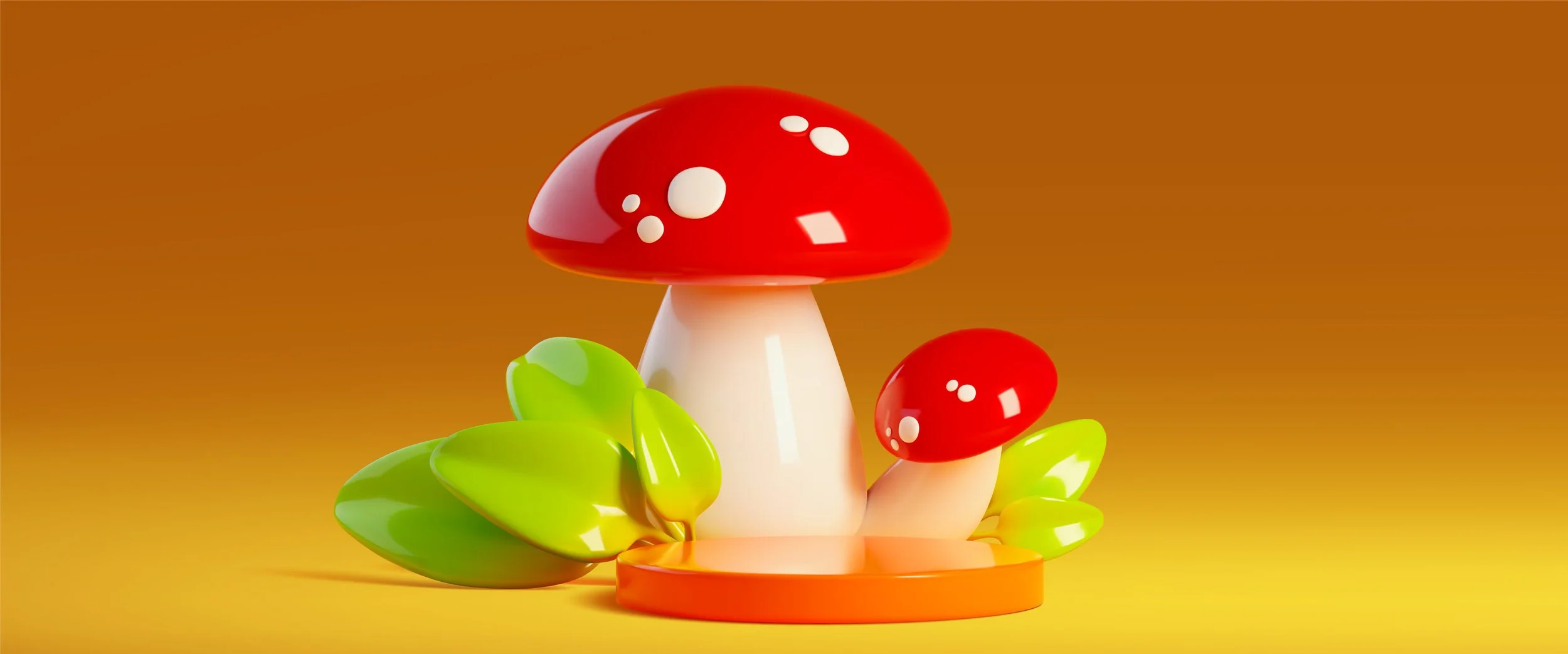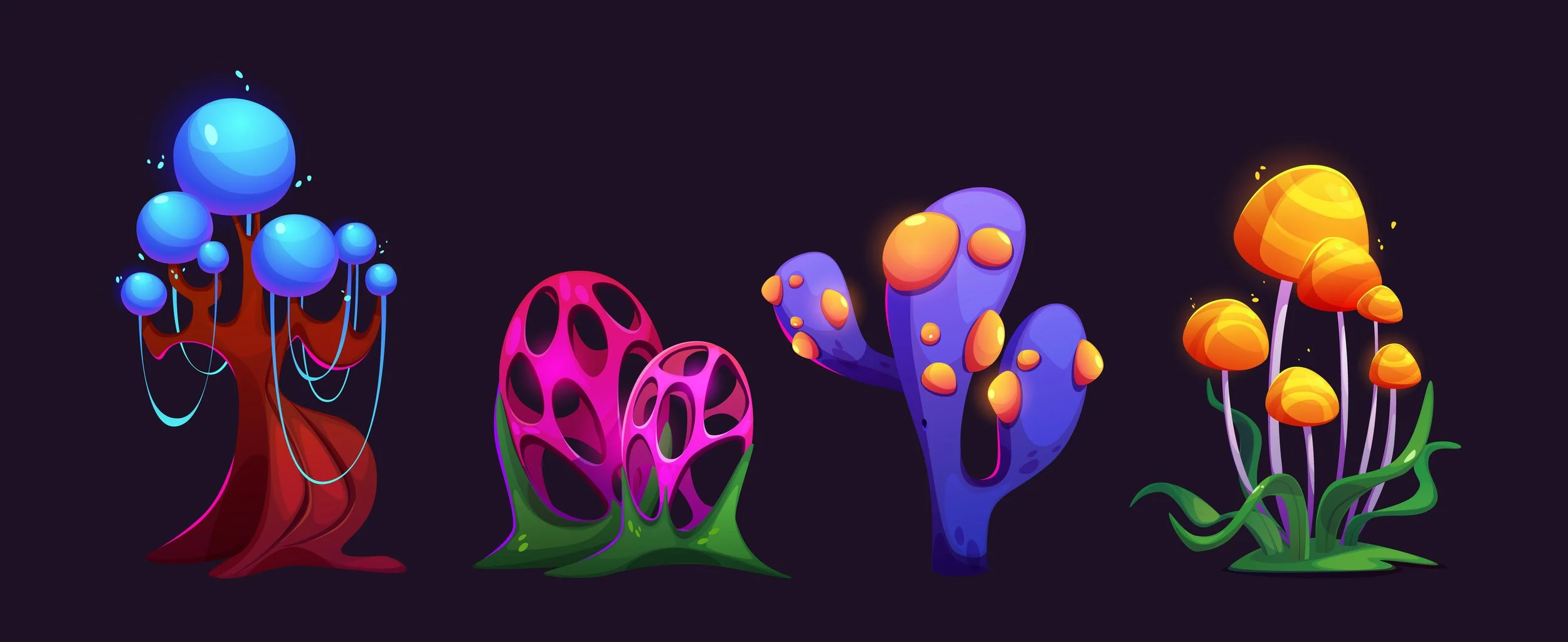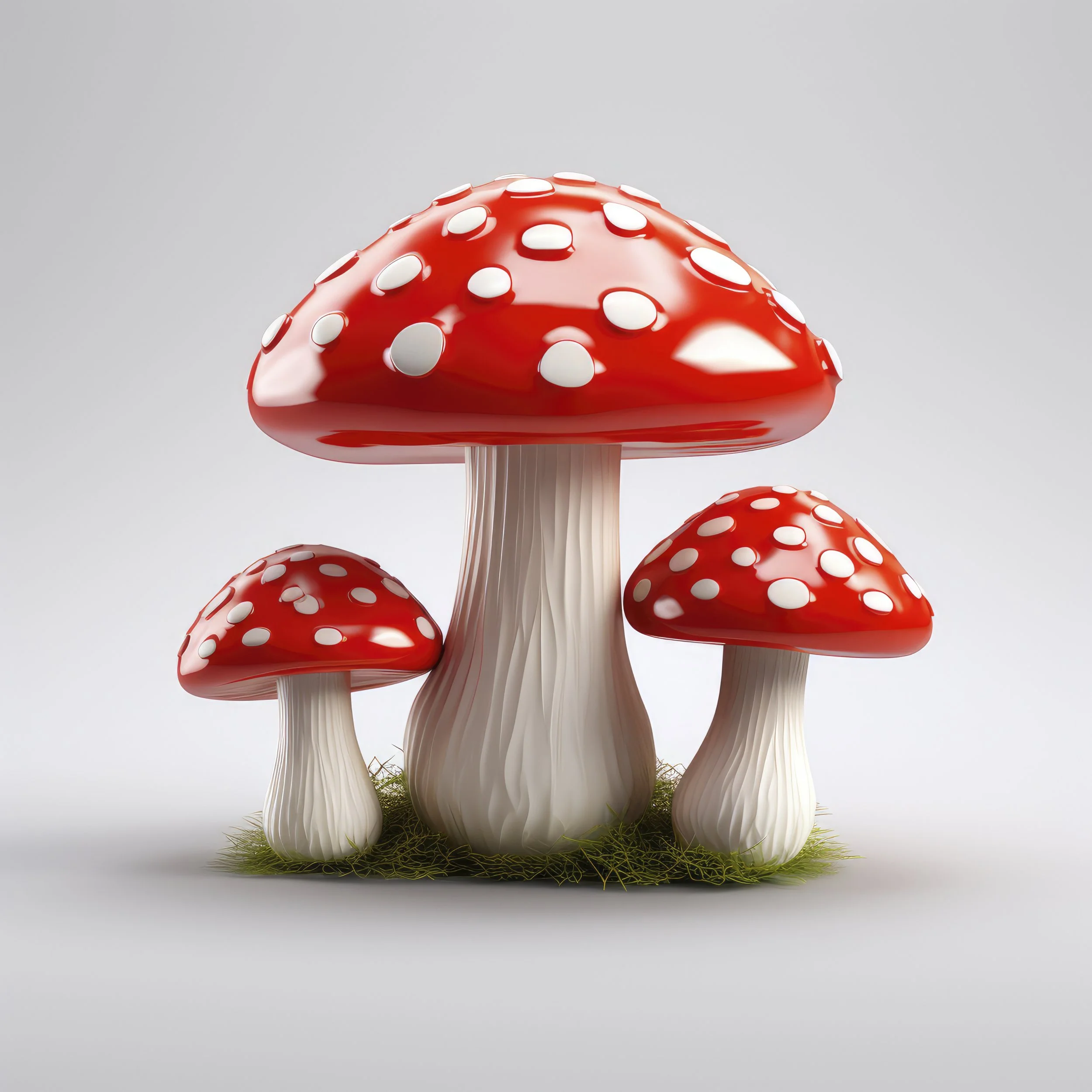
Lion's Mane (Hericium erinaceus)
Cognitive function: Contains compounds called hericenones and erinacines that stimulate nerve growth factor (NGF) synthesis, potentially improving brain cell growth and overall cognitive function.
Mental health: Animal studies suggest anti-inflammatory effects that may reduce mild symptoms of anxiety and depression.
Nervous system repair: Research indicates it may help speed recovery from nervous system injuries by promoting the growth and repair of nerve cells.
Immune support: Studies show it can boost the immune system and has powerful anti-inflammatory and antioxidant compounds.

Reishi (Ganoderma lucidum)
Stress and fatigue reduction: This mushroom is an adaptogen, believed to help the body manage stress, lessen fatigue, and improve mood and depressive symptoms.
Immune system enhancement: Reishi contains beta-glucans and other compounds that can modulate the immune system and enhance the activity of white blood cells.
Anti-inflammatory effects: It is rich in antioxidants and has potent anti-inflammatory properties that help protect cells from damage.
Sleep improvement: Its calming properties may contribute to improved sleep quality.

Cordyceps (Cordyceps militaris, Cordyceps sinensis)
Energy and athletic performance: Cordyceps is traditionally used to reduce fatigue and improve stamina. Some studies suggest it can increase the body's production of the molecule adenosine triphosphate (ATP), which delivers energy to the muscles.
Immune system support: Contains polysaccharides and other components that can have immunomodulatory effects.
Anti-aging properties: The antioxidant properties in cordyceps may help fight cell damage caused by free radicals, potentially slowing the aging process.
Anti-inflammatory effects: Studies suggest it may help reduce inflammation in the body.

Chaga (Inonotus obliquus)
Antioxidant and anti-inflammatory: Rich in antioxidants that fight free radicals and reduce inflammation, potentially supporting gut health and reducing the risk of chronic disease.
Immune system boost: Its polysaccharides and immune-modulating properties may help strengthen the immune system against pathogens.
Heart and liver health: Research indicates it may help lower cholesterol and reduce oxidative stress, supporting cardiovascular and liver health.
Benefits of Microdosing Psilocybin
Mental Health Benefits
Improved mood: Many users report an overall better mood, optimism, and appreciation for life.
Reduced depression and anxiety: Microdosing is often used to alleviate symptoms of anxiety and depression. Studies show that microdosers report lower levels of anxiety and depression than non-microdosers.
Improved mental well-being: Microdosers report a reduction in symptoms related to PTSD and an improved outlook on life.
Cognitive and Performance Benefits
Increased focus and concentration: Many users report improved focus, higher concentration, and less distractibility.
Enhanced creativity: Microdosing is associated with enhanced creative thinking, which is sometimes attributed to increased cognitive flexibility.
Better problem-solving: Users report a sense of clearer thinking and improved abilities for problem-solving.
Higher self-efficacy: This includes increased ambition, motivation, and productivity, with microdosing being particularly popular in some tech sectors.
Social and Physical Benefits
Increased energy: Microdosing is associated with increased wakefulness and stimulation, similar to caffeine but without the jitters.
Improved socialization: Users experience a greater sense of connection, empathy, and verbal fluency.
Reduced substance use: People who microdose report a decrease in their use of other substances like alcohol, cannabis, and tobacco.
Migraine and headache relief: Users report reduced frequency or severity of headaches and migraines.

